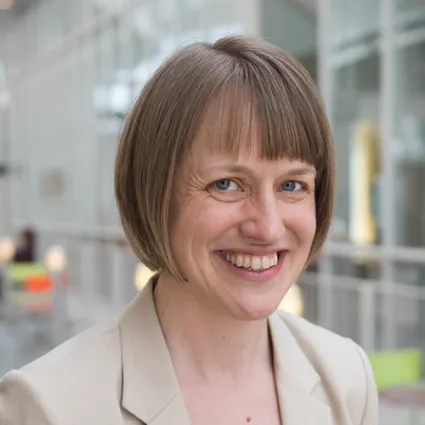Marnie S. Anderson
Barbara Richmond ’40 Professor in the Social Sciences and Professor of History

Biography
Marnie S. Anderson specializes in the social and political history of modern Japan with an emphasis on gender history. Anderson’s most recent book, In Close Association: Local Activist Networks in the Making of Japanese Modernity, 1868–1920 was published by the Harvard University Asia Center in 2022. She is also the author of A Place in Public: Women's Rights in Meiji Japan (2011), and her articles have appeared in Japanese Studies, the Journal of Women’s History, and the U.S.-Japan Women’s Journal. “From Status to Gender in Meiji Japan” for The New Cambridge History of Japan (vol. 3: Modern Japan), ed. Laura Hein was published in 2023. Her current research investigates the rise of large-scale conservative women’s activism in prewar and wartime Japan with a focus on the Patriotic Women’s Association (Aikoku fujinkai).
Anderson’s course offerings include surveys of Japanese history from ancient times to the present, a survey of modern East Asia, and specialized courses on women and gender in Japanese history, World War II in East Asia, war memory, and social protest.
Selected Publications and Media
Listen to "The Meiji at 150 Podcast" (Episode 23): Tristan Grunow (UBC) in conversation with Marnie Anderson.
“From Status to Gender in Meiji Japan.” In The New Cambridge History of Japan, vol. 3, ed. Laura Hein, 463-484. Cambridge: Cambridge University Press, 2023.
In Close Association: Local Activist Networks in the Making of Modern Japan, 1868-1920. Cambridge, MA: Harvard University Asia Center, 2022.
“From Concubine to Activist and ‘Anonymous Founder’: The Role of Networks in Sumiya Koume’s Life.” In Women and Networks in Nineteenth-Century Japan, edited by Bettina Gramlich-Oka, Anne Walthall, Sugano Noriko, and Miyazaki Fumiko, 201-220. Ann Arbor, MI: University of Michigan Press, 2020.
“The Forgotten History of Japanese Women’s History and the Rise of Women and Gender History in the Academy.” Journal of Women’s History, Vol. 32, No. 1 (2020): 62-84.
“Critiquing Concubinage: Sumiya Koume (1850-1920) and Changing Gender Roles in Modern Japan.” Japanese Studies, Vol. 37, No. 3 (2017): 311-329.
“Women and Political Life in Meiji Japan: The Case of the Okayama joshi konshinkai (Okayama Women’s Friendship Society).” U.S.-Japan Women's Journal, No. 44 (2013): 43-66.
“Women’s Agency and the Historical Record: Reflections on Female Activists in Nineteenth-Century Japan.” Journal of Women’s History, Vol. 23, No. 1 (March 2011): 38-55.
A Place in Public: Women’s Rights in Meiji Japan. Cambridge, MA: Harvard University Asia Center, 2011.
“Kishida Toshiko and the Rise of the Female Speaker in Meiji Japan.” U.S.-Japan Women’s Journal, No. 31 (December 2006): 36-59.
“Gender and Sexuality in Japan” (with Hitomi Tonomura). In Teaching About Japan in Japan, edited by Richard Bowring and Noel Pinnington, 91-139. Fukuoka: Kyushu University Press, 2001.
Office Hours
Spring 2026
Tuesday 11 a.m.-noon
Friday 1:30-2:30 p.m.
by appointment